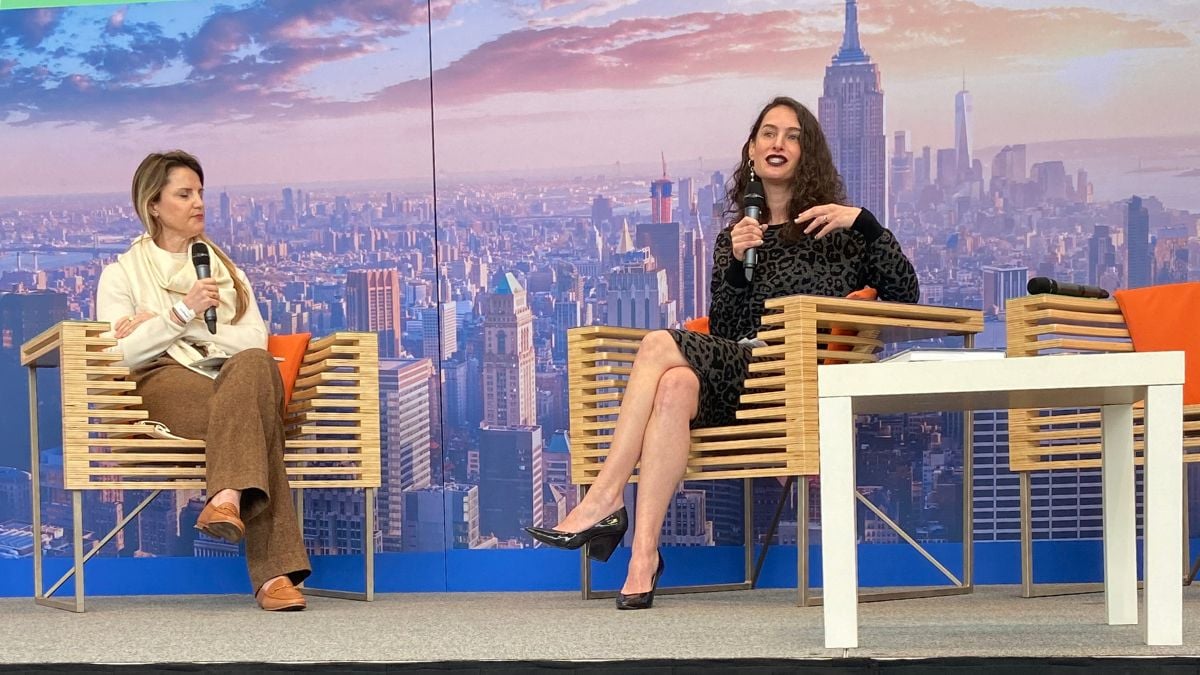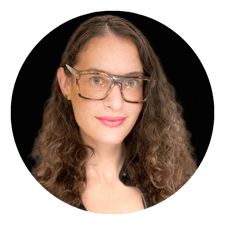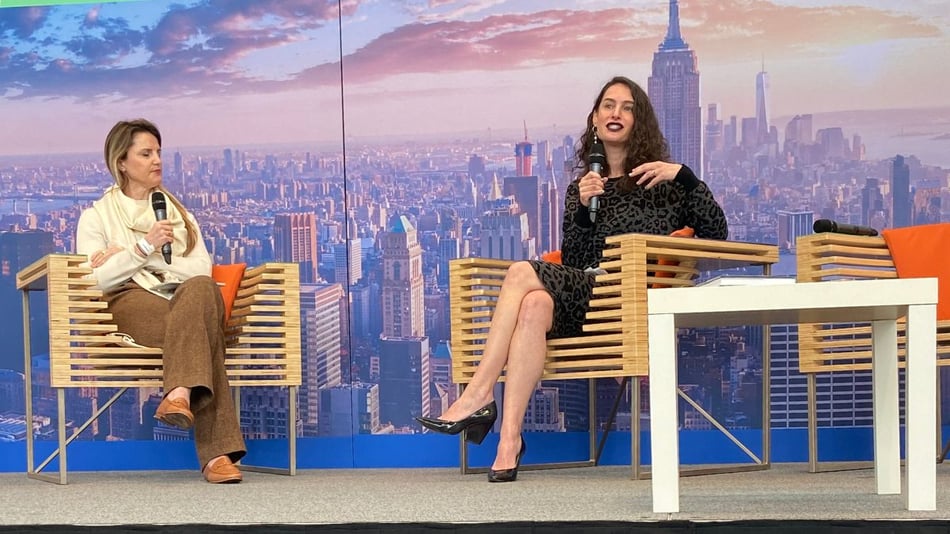We all know the stats: Women are under-represented in the c-suite, on boards, as investing partners, and as recipients of venture funding.
I’ve been fortunate in my career to beat the odds in all four categories: working as an investor for nearly 15 years and more recently, as the Chief Operating Officer and President of Feather, where I also sat on the board of directors and co-led multiple fundraises.
Along the way, I’ve learned a few things that have served me well. None of them apply to all women in all situations, but if one or two resonate, and help you better advocate for yourself or other women, I’ll see it as a win.
1. Be unapologetically yourself.
And if your femininity is a core part of your identity and how you present out in the world, embrace it in the workplace!
I know that doing so isn’t always easy. I’ve been in many meetings where I was the only woman, and early on, I avoided calling attention to anything that I thought might reduce my credibility — whether it was my femininity, my age, or anything else that seemed to deviate from the profile of those who seemed to be succeeding around me.
But over time, I learned that the best way to get ahead is to be myself. And part of that is leaning into my femininity. For important meetings, I feel most “armored up” in a bold patterned dress with bright red lipstick. It makes me feel powerful — and powerfully feminine — to dress in that way. I am not one of the boys, and don’t want to sacrifice a core part of myself by pretending that I am.

Image courtesy of Ilyse Kaplan, pictured right
2. See your femaleness as an asset.
Women have different life experiences than men, and as a result bring different perspectives to the table. Remember the old adage, “to the man with a hammer, every problem is a nail.” Women think to bring different tools to the task at hand.
According to research cited in 2021 by the Harvard Business Review, firms with more women in senior positions are more profitable, more socially responsible, and provide safer, higher-quality customer experiences. Having women in the room as investors, executives, and beyond, leads to better outcomes for all.
3. Join a company that is committed to supporting people with diverse backgrounds.
If you can seek out a workplace where the executive team and board understand the value of diverse perspectives, you’ll be more likely to feel comfortable leaning into your femininity, and ultimately drive a bigger impact by being unapologetically yourself.
One potential sign of an organization that values diversity is if the leadership team already has folks from a variety of backgrounds. And remember, there always needs to be a “first”, so if that initial step towards a more diverse, inclusive, and equitable leadership team starts with you, consider whether stepping into the role will empower folks throughout the organization to see themselves represented at the top.
4. Asking for help is a sign of strength, not weakness.
There are times in my career where I have been reticent to let others know that I didn’t have it all figured out. I used to think that if I let people realize I don’t have all the answers, they’d think I was incapable, or weak. Turns out none of us have all the answers — not even the CEO — and showing that you have the humility and self-awareness to ask someone else to help you is a key ingredient in building meaningful relationships — and getting ahead at work.
Though you may feel lonely at times — especially if you’re the only woman on the team, in the office or in the boardroom — nobody gets ahead alone. As Tiffany Dufu, the author of the excellent book Drop the Ball, reminds us, “Our journeys aren't solo endeavors. It's a team sport.”
5. Approach your career with an abundance mindset and support other women.
Don’t just ask for help — provide it to others as well.
One way that has helped me personally to get ahead in my career is to build a community of peers — including both my local group of girlfriends and a more formal group of professional women. Elpha is a great (free!) resource to have open discussions and connect with women in similar positions. I’ve also been a member of an organization called FutureWomenX for years, and find the support and shared wisdom of other women in the group to be invaluable.
Within your company, you may be able to support women via direct mentorship or employee resource groups (“ERG”). Or you can do it more informally — at Feather, we had a “Female Feathers” Slack channel that was a great resource to support one another in both professional and personal ways.
There is no zero-sum game, and working together helps to increase the pie which leads to more for all.
6. Seek out coaching.
In addition to asking people in your network for help, if you’re able to, seek out coaching to help you level up. The best athletes in the world all have coaches — why shouldn’t we have them in business as well? I’ve been fortunate to work with an incredible executive coach — both during professional transitions, and while in my most recent role as President of Feather — and that experience has been tremendously valuable. I’ve seen more and more companies in the last few years offer some sort of coaching as a Learning and Development (“L&D”) benefit. At Feather, we offered 2x per month coaching sessions to any employee who wanted them through a startup called Boon Health, which I’d highly recommend. If your company isn’t currently offering a program like this, ask your manager if the company would be able to subsidize all or some of the cost.
7. Advocate for yourself.
Don’t assume that someone else is going to take care of you — with a raise, a promotion, an investment in your career development, or anything else. Oftentimes, even the best-intentioned managers can be overwhelmed with other to-dos, and will deprioritize things that are — to you — a top priority. Make sure you understand the market pay, promotion cadence, and benefits that are typical for your role, and don’t be afraid to ask for what you deserve.
Women have made huge strides in the workplace, but there’s much work to be done.
According to the 2022 Women in the Workplace study, an annual report put together by LeanIn.Org and McKinsey & Company, only 1 in 4 C-suite executives is a woman, and only 1 in 20 is a woman of color.
In 2022, companies with all-female founding teams raised only 2% of VC funds, and mixed-gender teams accounted for only 17% of the total. Across all job sectors, women represent 47% of the workforce- but the five largest tech companies on the planet (Amazon, Apple, Facebook, Google and Microsoft) have a workforce only composed of 34% women.
The gender gap still exists in access to tech jobs, salaries, funding, and leadership.
It’s on us to change that, and to support other women in collectively gaining more power and driving more impact. And of course, part of that starts with supporting yourself, and showing up in your space, unapologetically as yourself.
About Ilyse Kaplan

Ilyse Kaplan is the founder of INKed Consulting, where she provides strategic, financial, and operating advice to startup & scale-up businesses.
Prior to launching her own consulting firm, Ilyse was the President and COO of Feather, where she led all aspects of the organization including growth, technology, and operations. She also sat on the Board of Directors. Ilyse joined Feather in 2018 and steadily helped build core competencies across FP&A, capital markets, compliance, fundraising, logistics, and technology. She was instrumental in helping the company achieve critical operational milestones, expansion across multiple markets, and in securing both the Series B fundraise and a $30m debt vehicle to further fuel the growth. In 2022, she led the sale of Feather to a strategic acquirer.
Prior to joining Feather, Ilyse was a sought-after consultant focusing on strategy for early stage consumer startups in wellness, haircare, and retail sectors. Earlier in her career, she spent twelve years as an investor.
Ilyse lives in Ann Arbor, MI with her husband. In her free time, she loves to travel (having visited >65 countries), read (she aims to finish 40 books a year), and make and see art.


.jpg?width=50&name=Ilyse%20Kaplan%20headshot%20(1).jpg)




